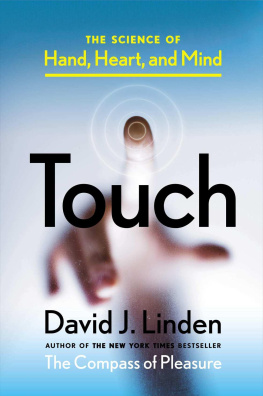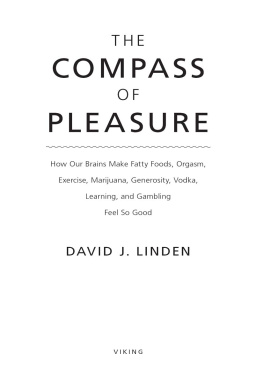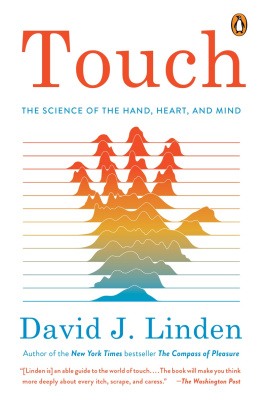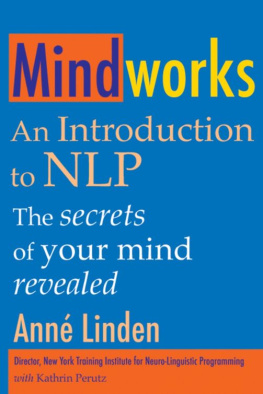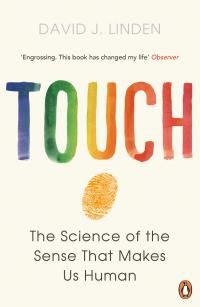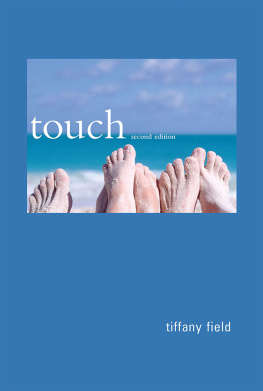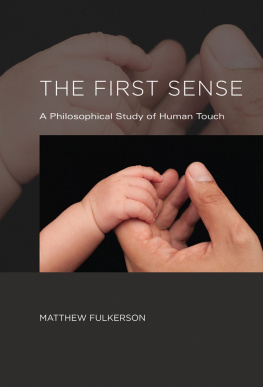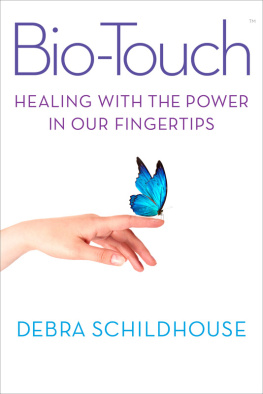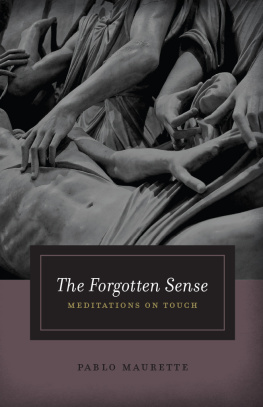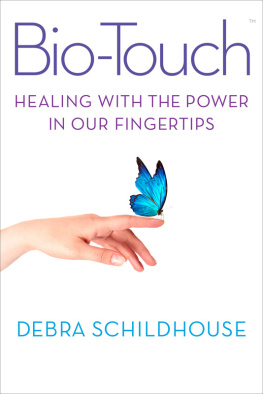Linden - Touch : the science of hand, heart, and mind
Here you can read online Linden - Touch : the science of hand, heart, and mind full text of the book (entire story) in english for free. Download pdf and epub, get meaning, cover and reviews about this ebook. year: 2015, publisher: Viking, genre: Romance novel. Description of the work, (preface) as well as reviews are available. Best literature library LitArk.com created for fans of good reading and offers a wide selection of genres:
Romance novel
Science fiction
Adventure
Detective
Science
History
Home and family
Prose
Art
Politics
Computer
Non-fiction
Religion
Business
Children
Humor
Choose a favorite category and find really read worthwhile books. Enjoy immersion in the world of imagination, feel the emotions of the characters or learn something new for yourself, make an fascinating discovery.
- Book:Touch : the science of hand, heart, and mind
- Author:
- Publisher:Viking
- Genre:
- Year:2015
- Rating:5 / 5
- Favourites:Add to favourites
- Your mark:
Touch : the science of hand, heart, and mind: summary, description and annotation
We offer to read an annotation, description, summary or preface (depends on what the author of the book "Touch : the science of hand, heart, and mind" wrote himself). If you haven't found the necessary information about the book — write in the comments, we will try to find it.
Johns Hopkins neuroscientist and bestselling author of The Compass of Pleasure, David J. Linden presents an engaging and fascinating examination of how the interface between our sense of touch and our emotional responses affects our social interactions as well as our general health and development. Accessible in its wit and clarity, Touch explores scientific advances in the understanding of touch that help explain our sense of self and our experience of the world. From skin to nerves to brain, the organization of the bodys touch circuits powerfully influences our lives--affecting everything from consumer choice to sexual intercourse, tool use to the origins of language, chronic pain to healing. Interpersonal touch is crucial to social bonding and individual development. Linden lucidly explains how sensory and emotional context work together to distinguish between perceptions of what feels good and what feels bad. Linking biology and behavioral science, Linden offers an entertaining and enlightening answer to how we feel in every sense of the word-- Read more...
Abstract: The New York Times bestselling author examines how our sense of touch and emotion are interconnected Johns Hopkins neuroscientist and bestselling author of The Compass of Pleasure, David J. Linden presents an engaging and fascinating examination of how the interface between our sense of touch and our emotional responses affects our social interactions as well as our general health and development. Accessible in its wit and clarity, Touch explores scientific advances in the understanding of touch that help explain our sense of self and our experience of the world. From skin to nerves to brain, the organization of the bodys touch circuits powerfully influences our lives-affecting everything from consumer choice to sexual intercourse, tool use to the origins of language, chronic pain to healing. Interpersonal touch is crucial to social bonding and individual development. Linden lucidly explains how sensory and emotional context work together to distinguish between perceptions of what feels good and what feels bad. Linking biology and behavioral science, Linden offers an entertaining and enlightening answer to how we feel in every sense of the word--
Johns Hopkins neuroscientist and bestselling author of The Compass of Pleasure, David J. Linden presents an engaging and fascinating examination of how the interface between our sense of touch and our emotional responses affects our social interactions as well as our general health and development. Accessible in its wit and clarity, Touch explores scientific advances in the understanding of touch that help explain our sense of self and our experience of the world. From skin to nerves to brain, the organization of the bodys touch circuits powerfully influences our lives--affecting everything from consumer choice to sexual intercourse, tool use to the origins of language, chronic pain to healing. Interpersonal touch is crucial to social bonding and individual development. Linden lucidly explains how sensory and emotional context work together to distinguish between perceptions of what feels good and what feels bad. Linking biology and behavioral science, Linden offers an entertaining and enlightening answer to how we feel in every sense of the word
Linden: author's other books
Who wrote Touch : the science of hand, heart, and mind? Find out the surname, the name of the author of the book and a list of all author's works by series.

